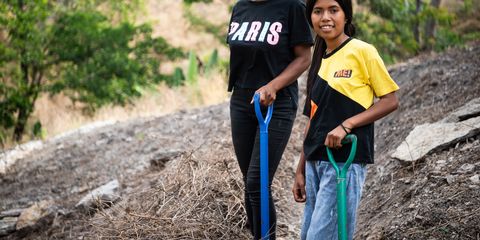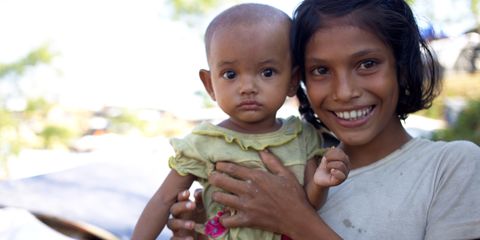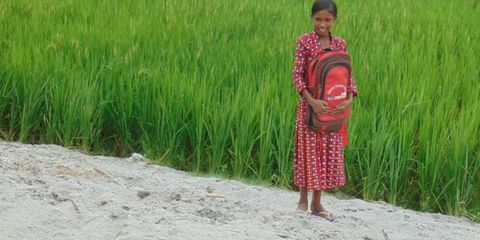Rain can’t wash away Sarai’s hope and resilience
Sarai was alone when intense El Nino rains flooded and isolated her village. Since, through support networks, Sarai has come to understand the psychological effects of the flooding, building relationships with other affected girls as they help each other to heal. Now, Sarai is back at school and optimistic for the future.
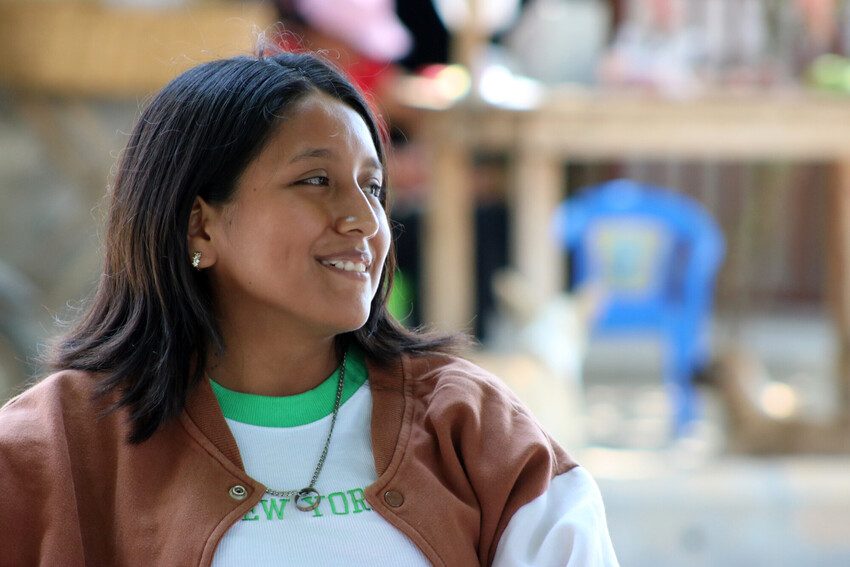
“I haven’t lived in this village for very long. When I first came here, the floods kept my father away. I didn’t know my stepmother and stepbrother very well. It was a hard time.”
Floods keep the family apart
Not long after 15-year-old Sarai moved to a new village to live with her father near Piura in Peru, heavy rains started to fall. As the water rose, Sarai’s father became stranded in the neighbouring village where he works, leaving Sarai to watch fearfully as water started to seep through the walls of her home.
“I began to meet the girls, relax and let go of the things that had happened to me.”
Sarai
Intense rains caused by El Niño washed away the village roads and 2 ravines bordering the area flooded, cutting off the remote community. It would be 2 weeks before her father could get back home safely. “I felt trapped, and there was nowhere to go if the flooding got worse,” recalls Sarai.
For months after the devastating floods, Sarai had bouts of anger and anxiety. She felt misunderstood and didn’t know how to talk about what she was going through. “I used to love the rain,” says Sarai. “Now the sound of it makes me afraid that I will be alone and separated from my family again.”
Reading, music and dancing helps overcome difficulties
Attending her new school was difficult at first. “Classes were very stressful; I’m not very good at online classes,” Sarai admits. “My performance at the beginning was low but I recovered over time.”
A classmate suggested to Sarai that she join the support sessions offered by Plan International as part of our humanitarian response for people affected by the floods. The sessions helped Sarai understand the connection between her feelings and the frightening experience of the floods and separation from her family. She also learnt how to use coping strategies at difficult times.
“Being able to empathise through sisterhood was something new for me. We learnt to take care of ourselves and each other.”
Sarai
“I didn’t think I wanted to talk about the rains because the feelings were so strong,” Sarai says. “I cried in those sessions, but it also helped me look for the positive side. I let out so much with my memories.”
“I began to meet the girls, relax and let go of the things that had happened to me. I thought this was a good thing because there were only girls in the group, and they could help me,” Sarai explains.
The sessions introduced Sarai to activities that helped her manage her feelings as they arose. “Focusing on reading and imagining the story and images in my mind helped me a lot – so did music and dancing,” she says. “Music carries emotion, and when you dance, you free those emotions. It frees me from the sadness.”
Sisterhood and a bright future
“The project taught me about sisterhood. I began to empathise with my classmates. Being able to empathise through sisterhood was something new for me. We learnt to take care of ourselves and each other,” shares Sarai.
Sarai is now looking to the future with optimism. “Nowadays I feel calmer, my routine has improved. I want to complete school,” she says. “My first choice is to be a surgeon and my second choice is to be a lawyer.”
When it rains in the future, Sarai says she feels better prepared for all eventualities. “I will personally face it with everything I’ve experienced and learnt. I will face it as a new me because now I am mentally prepared.”
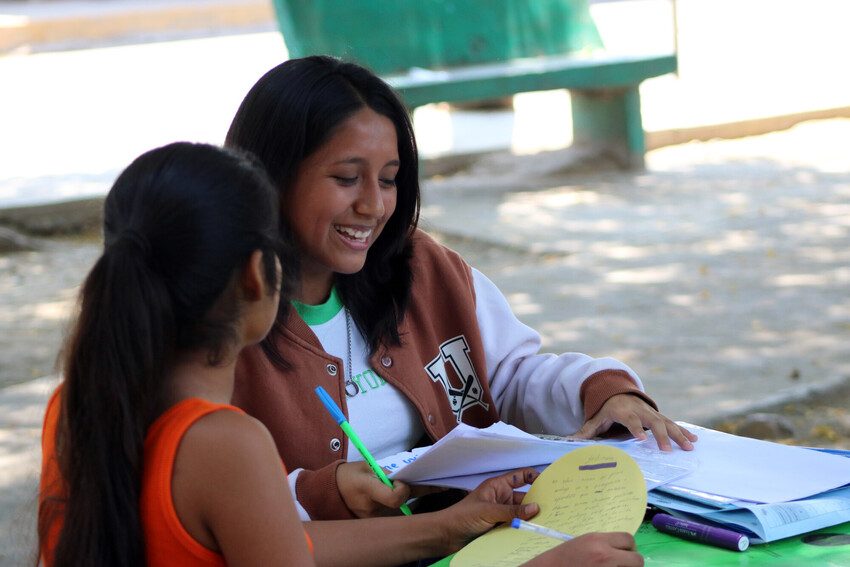
How Plan International helped
In response to severe flooding in Peru, Plan International provided psychosocial support, safe spaces and essential items for adolescent girls and young women like Sarai. Creating safe spaces for girls’ psychological healing during emergencies, is one of the ways we are working together to Beat the Clock.
Plan International’s “In the Emergency with You” project was implemented as part of our water, sanitation, hygiene and protection intervention in response to the heavy rains and landslides in the districts of Tambogrande and Chulucanas in Piura region following Cyclone Yaku which struck in March 2023 and the El Niño phenomenon.
The project initially responded with shelter materials (bedroom kits, mattresses, pillows, mosquito nets), and safe water and hygiene kits for families displaced from their homes. We also provide protection and psychological support by establishing child-friendly spaces and providing counselling and information sessions for children affected by the floods. Dignity and safety kits were also distributed to children, young people and women, along with awareness raising activities on sexual and reproductive health.
In numbers
• 861 bedroom kits were distributed to children, young people and their families.
• 271 psychosocial support sessions were delivered to children and young people.
• 600 water and hygiene kits were provided to displaced families affected by the floods, along with information on safe hygiene practices in emergency contexts.
• 3,504 vector control and dengue fever prevention kits were distributed to families.
• More than 18,000 people in need of support were reached through our interventions.
Emergencies, Child protection in emergencies, Disaster relief
